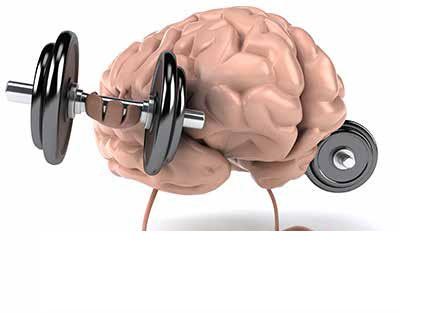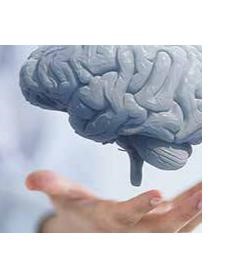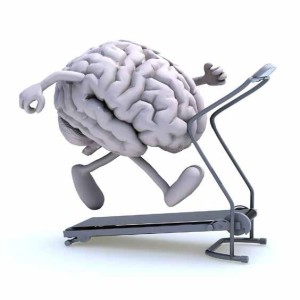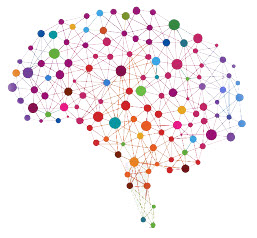Best Brain Health Exercises to Improve Cognitive Performance
Is Brain fog or memory loss impacting your life in a growing or worrisome way? Alzheimer’s and dementia are most frequent in 65+ men but cognitive issues like brain fog and forgetfulness are getting more are more frequently seen in younger men. These brain health and memory issues could be from Andropause.
What are the best brain health exercises?

Exercise has always been seen as one of the key pillars to keep the body fresh and mind sharp and healthy as we age. But what type of exercise is best? Are they all the same?
Researchers examined the results of brain health on rats after running them through varied exercise programs. According to the researchers at the University of Jyvaska in Finland, below are the best brain health exercises to do.
- Running
- Weight Lifting
- High Intensity Interval Training (HIIT)
These three brain health exercises were identified and tracked across three groups of rats for a seven week period. The researchers injected the rats’ brains with a fluid that allowed them to track activity in the hippocampus of the rats. This activity identified the development of new brain cells anywhere in the brain but focused on the hippocampus because this is the area of the brain associated and used for learning and memory. The researchers hypothesized that whichever exercise stimulated new brain cell creation for use in learning or memory would help measure that exercise’s ability to stimulate brain growth, development and regeneration.
Brain Health Exercises Experiment Activities
Running: rats jogged on wheels in their cages
Weight Lifting: rats climbed walls with weights attached to their tails
HIIT: rats were placed on treadmills and forced to sprint/keep up at varying speeds and intervals
 Results
Results
Running was the winner!! The rats jogging on a where showed more neurogenesis than the other groups of rats. The HIIT rats experienced some improvement, however, the weight trained rats showed no improvement. The Finnish scientist concluded that “in order to promote [adult hippocampal neurogenesis] maximally, exercise should be aerobic and sustained.”
 Maintaining a healthy brain healthy provides many other physical benefits. Mindful meditation has shown to reduce stress, heart rate and reduce inflammation in the body.
Maintaining a healthy brain healthy provides many other physical benefits. Mindful meditation has shown to reduce stress, heart rate and reduce inflammation in the body.
Testosterone helps regulate cortisone, which is a stress hormone, and affects the efficiency of our brain’s neurotransmitters. When men suffer from decreased testosterone levels they lose some ability to effectively regulate cortisol levels, which can cause neurotransmitters malfunction and lapses in memory. This is one of the reasons why cognitive issues are highly correlated with decreasing testosterone levels and you see higher incidence of cognitive impairment in men than you do in women.
 Testosterone Therapy to Improve and Maintain Brain Health
Testosterone Therapy to Improve and Maintain Brain Health
If these symptoms, cognitive issues, brain fog or memory issues are creeping up on you do not wait too long to start doing something about it. If they are affecting you, one potential solution is through testosterone and hormone replacement therapy. Contact Hormone Therapeutics and talk to our experts and find out if we can help you.
Hormone Therapeutics aims to help people looking to improve and optimize their health through natural means or through the guidance of our physicians.
Don’t miss out our free weekly tips and news on Low T, hormone balancing, healthy living, nutrition and a lot more.
Want more?

Sign up today and Get our ebook, ‘Naturally Increase Your Testosterone Levels’ absolutely FREE.
Best Brain Health Exercises to Improve Cognitive Performance
Saleamp Design November 29th, 2016
Posted In: Health & Wellness
Tags: brain fog, brain health, brain health exercises, cognitive, cortisol, exercises, impairment, inflammation, meditation, memory, memory loss, neurogenesis, neurotransmitters, stress, TBI, testosterone therapy, traumatic brain injury
The Causes of Low T in Men
Low T is generally due to andropause and the body producing less testosterone. There are other causes of low t, however, why the body might be producing less testosterone than what it requires to perform all of its bodily functions optimally. Some of the causes of low testosterone include:
The Causes of Low T in Men
Saleamp Design February 6th, 2015
Posted In: Low T Info
Tags: aging, anabolic steroids, causes of low t, causes of low testosterone, Chemotherapy, convert testosterone to estrogen, create testosterone, drugs, histiocytosis, HIV, hypogonadism, hypothalamus, inflammation, low t, low t in men, Low T Issues caused by Aging, low testosterone in men, medications, obesity, oxycontin, performance enhancing, pituitary glands, sarcoidosis, shrinkage, steroid abuse, steroids, testicle shrinkage, testosterone, testosterone production, testosterone therapy, tuberculosis, vicodin


 Results
Results Testosterone Therapy to Improve and Maintain Brain Health
Testosterone Therapy to Improve and Maintain Brain Health